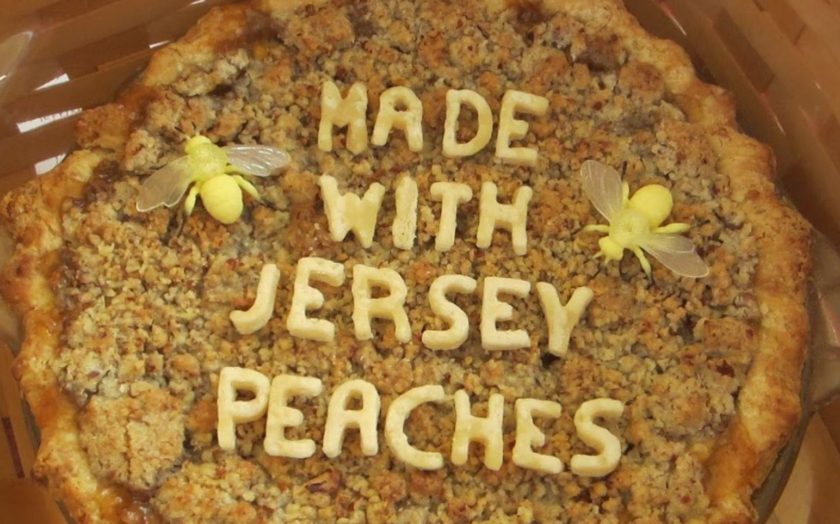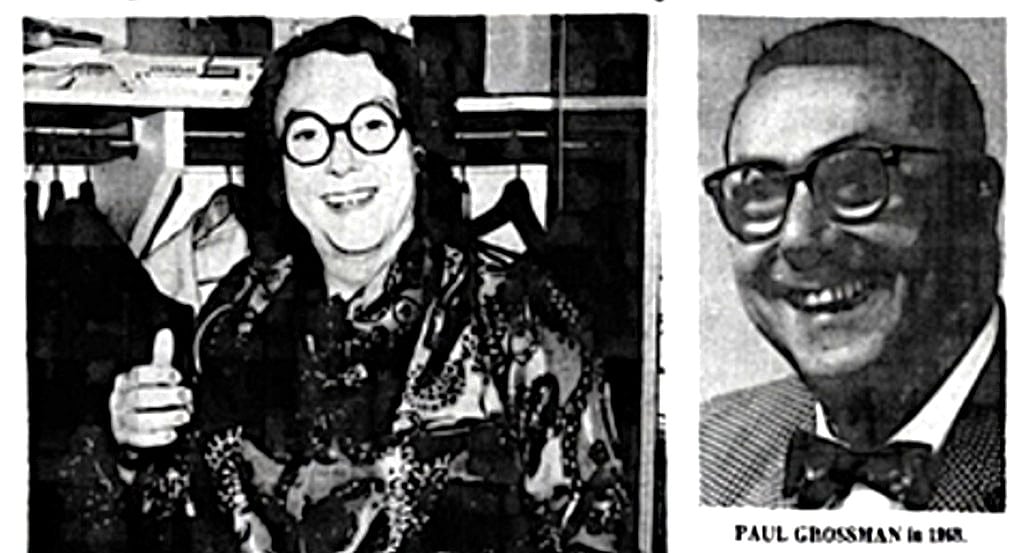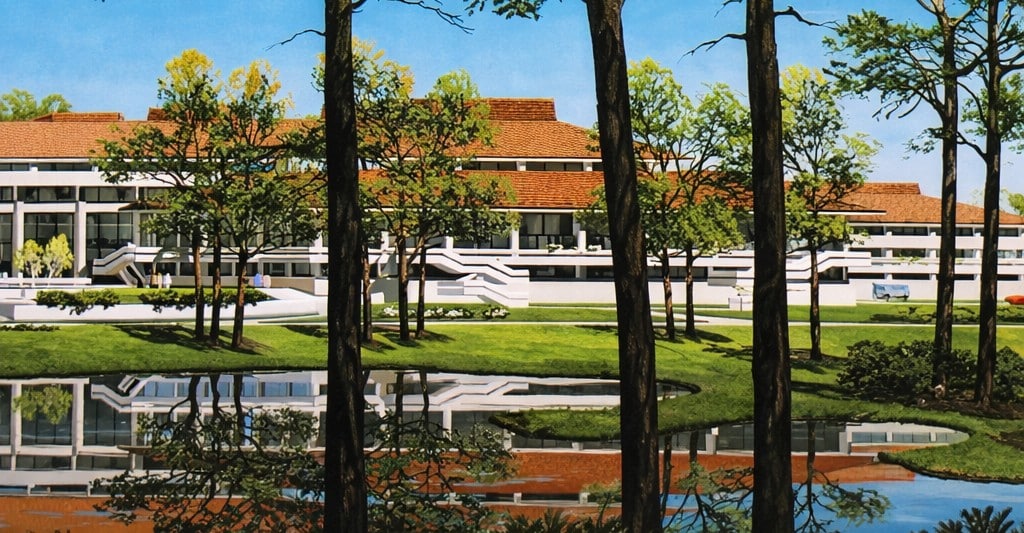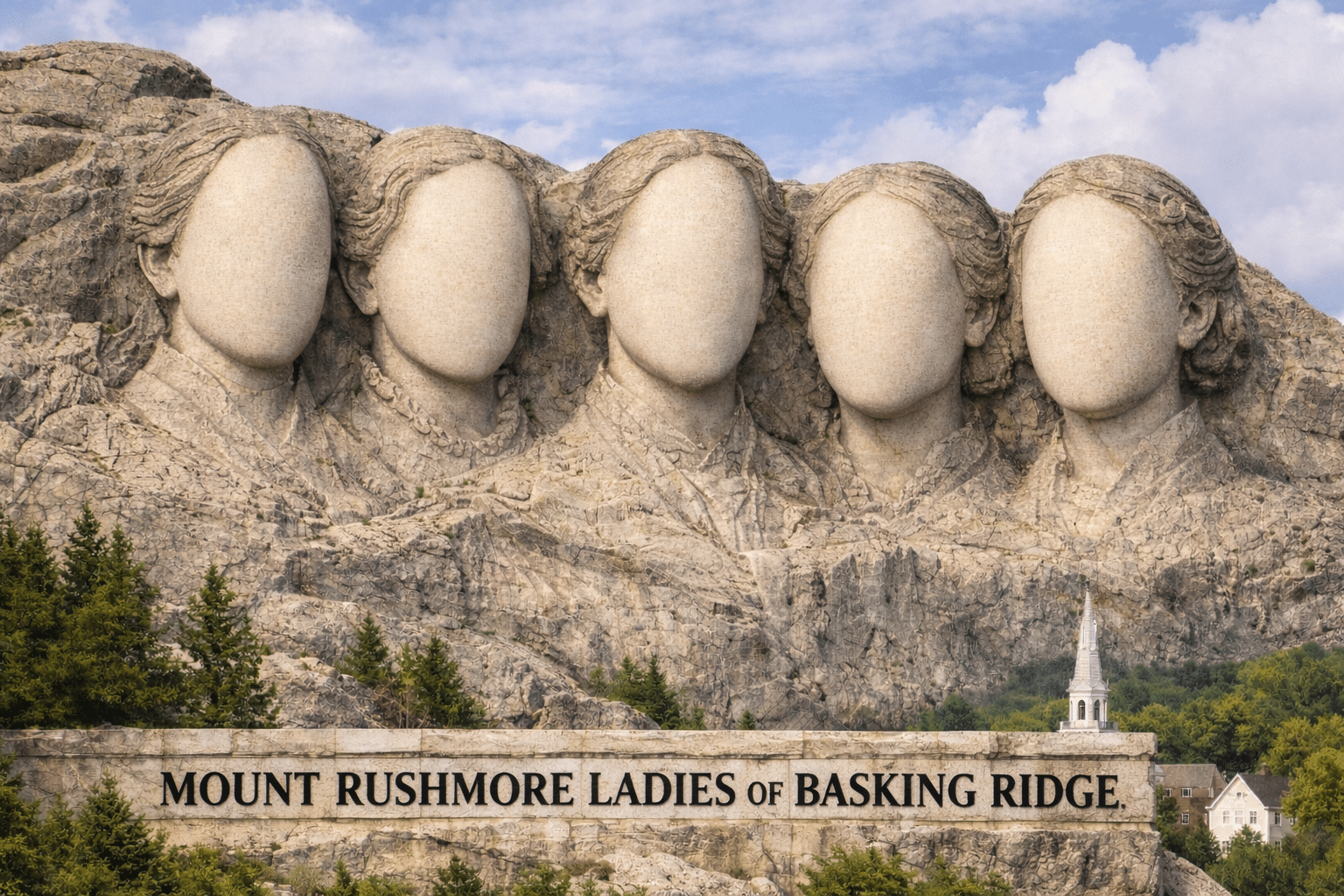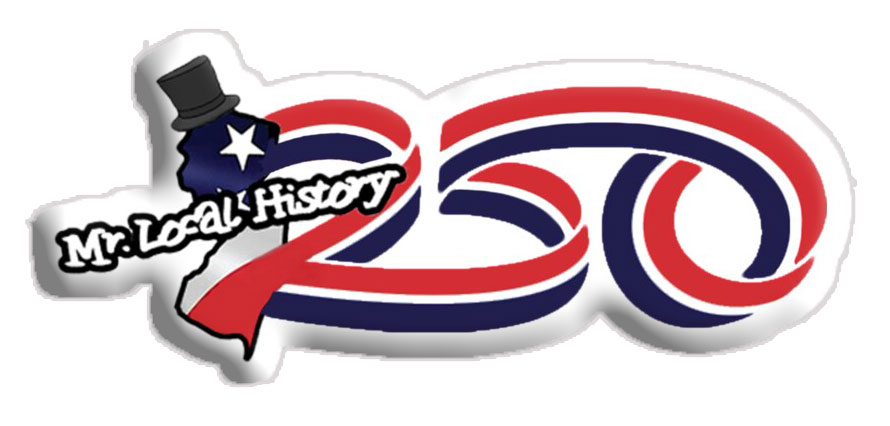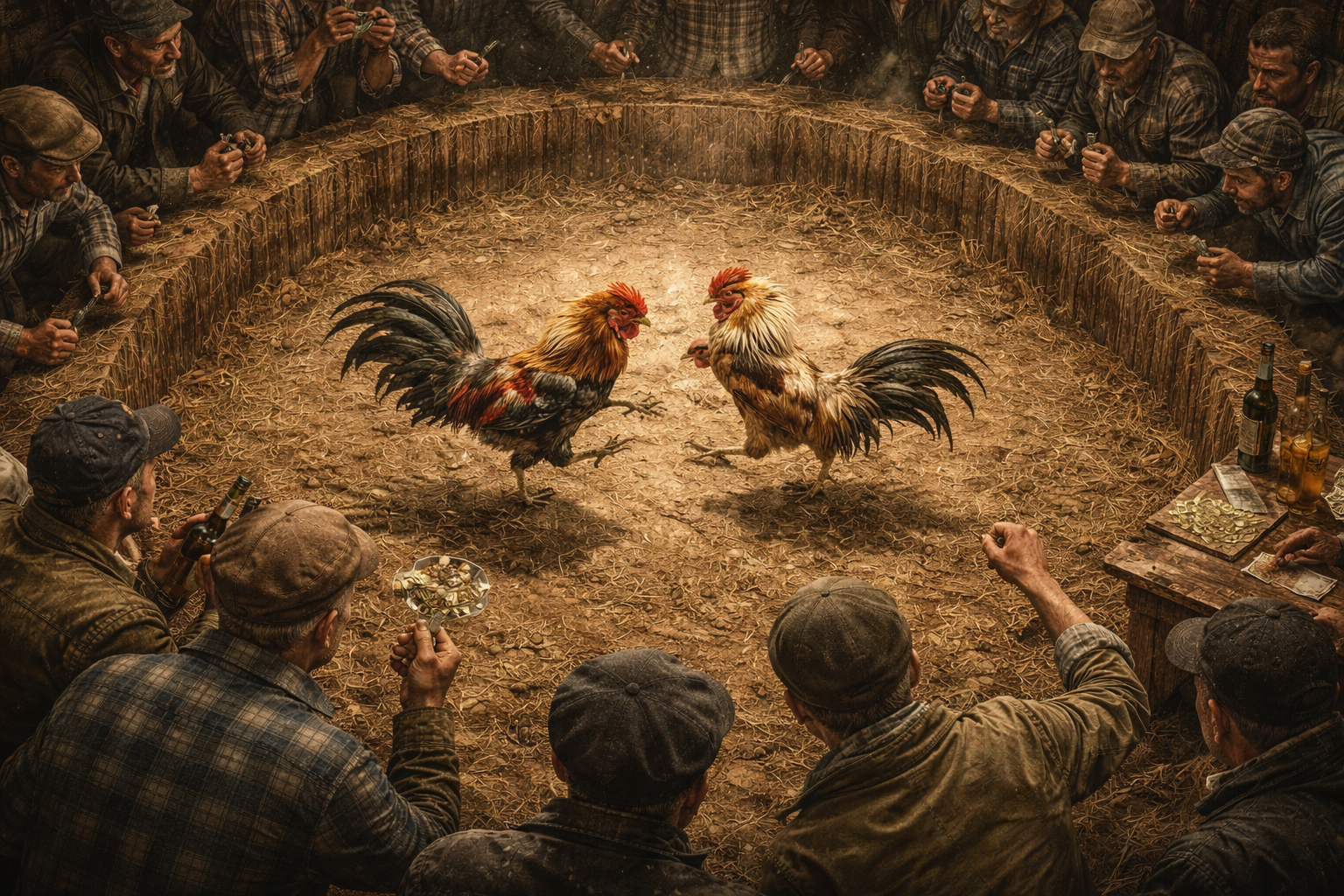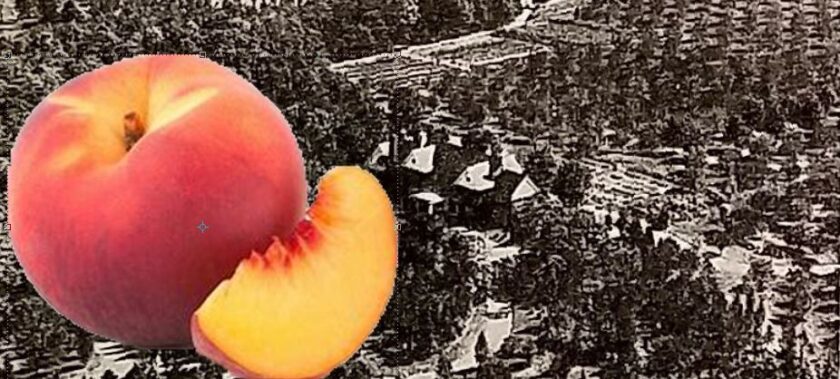
Peaches Peaches Everywhere
Many don’t remember that New Jersey, particularly Somerset, Morris, and Hunterdon Counties, were premier peach orchards with some of the best in the United States. If you live in New Jersey, you know that summertime in Garden State produces an astounding crop of peaches. But it wasn’t always that way. In fact, it was bigger!
Most agree the peach probably originated in China and then spread westward through Asia to the Mediterranean countries and later to other parts of Europe. The Peaches were introduced to North America by Spanish monks in the mid-1500s. Franciscan monks introduced peaches to St. Simons and Cumberland islands along Georgia’s coast in 1571. By 1607, peaches were widespread around Jamestown, Virginia. Although its botanical name, which translates as ‘Persian plum,’ suggests the peach originated from Persia (modern-day Iran), genetic research indicates that it comes from China. First cultivated: Peaches have been grown in China for almost 6,000 years.
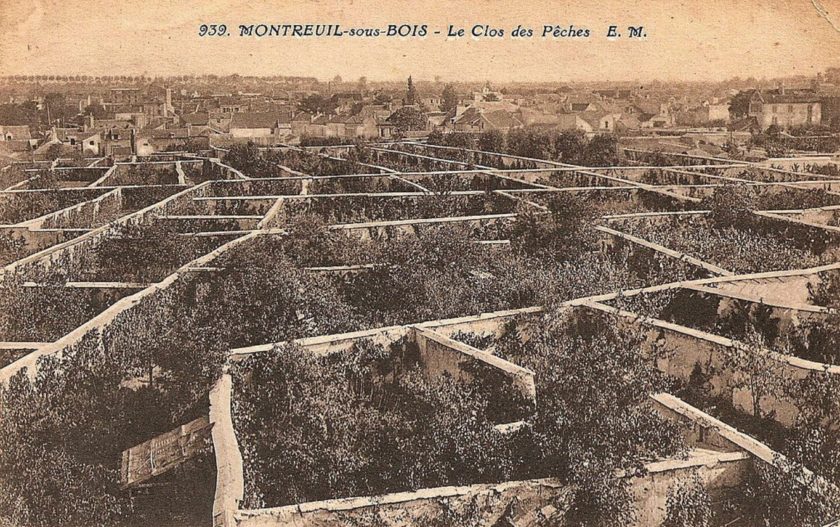
Local Farms
Peach growing began in New Jersey in the early 1600s when colonists began importing European varieties. The early settlers learned that fruit thrived better in the coastal areas of the continent than in Europe. In the 1600s, it was cultivated in New Jersey, Delaware, and Maryland. New Jersey was well suited to peach growing, and an atlas was published in Scotland in 1684 called “The Garden of the World.” Perhaps this is why New Jersey’s known as “The Garden State.”
Toward the end of the 1800’s Hunterdon County became the center of peach production, shipping as many as 750,000 bushels in a single season. At this time, 90 varieties were grown, but only 20 ranging from 6-10 years. The short life of peach trees was as serious a concern over 100 years ago as it is today. The introduction of the peach variety known as the “New Jersey Improved Free Peach” in the mid-1800s further bolstered the state’s peach industry. This variety was highly regarded for its flavor and adaptability.
Many people new to Somerset County may not know, for example, that Basking Ridge, the township, and the surrounding area once had some of the largest peach and apple orchards in the state. The famed Cedar Hill Farm (now the township hall) was literally lined with thousands of peach and apple trees. Longtime resident Mr. Bruce McArthur noted that what is now Astor Fields had 35 acres that showcased over 5,000 peaches and 1,500 apple trees.
1912- 1940
Samuel Owen and Basking Ridge’s Cedar Hill Orchards
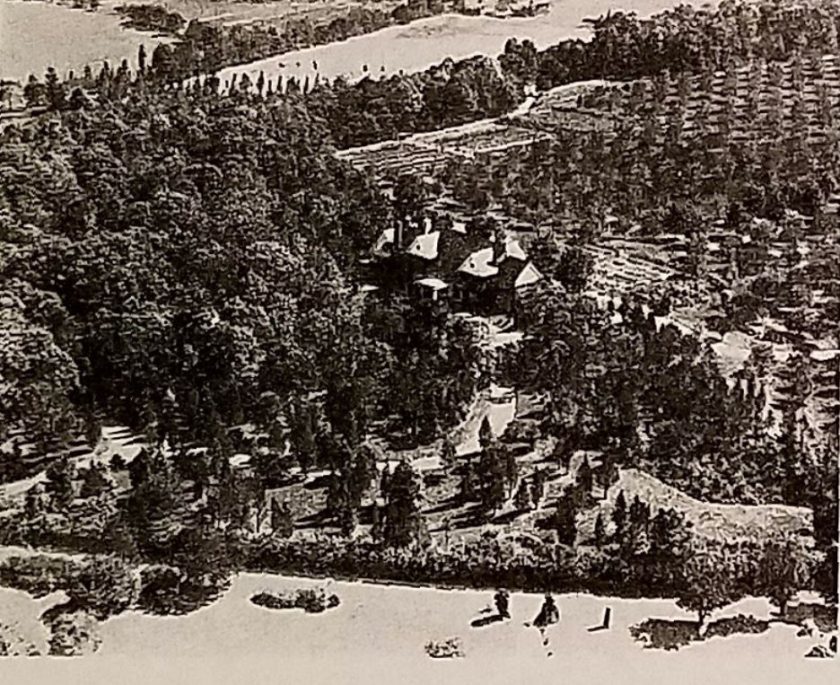
The Cedar Hill fruit farm was one of the most extensive orchards in the Somerset Hills of northern Somerset County, all planted by Samuel Owen and his farm hands. People would come from all over via the train when the orchards bloomed.
The peach crop would earn as much as $50,000/year. I also remember that people would come and rather than pick fruit, we offered dropped peaches (those that fell on their own) at 3 baskets for $1.
Peter McArthur, local resident who lived on the farm.
Samuel died, leaving the property in an estate that his nephew inherited, and the property was finally sold in 1940.
Jersey Orchard Killer
Stories written over the years suggest that the Cedar Hill orchards in Basking Ridge were no longer in existence when Astor purchased the Basking Ridge, NJ, estate in 1950. What happened to the orchards? In the 1920s, a parasite called the San Jose Scale, named for where it was first discovered in 1881, originated in China and subsequently appeared in New Jersey orchards. The effects were visible to the naked eye, but a high-powered lens was needed to see the parasite. The scale could destroy a tree in as little as one season. A lime sulfur spray with water provided some relief, but it wasn’t enough.
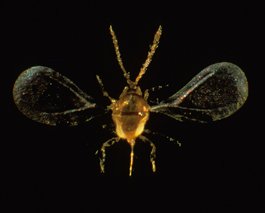
The Somerset Hills Distilling Royalty
Peach Distilling = Moonshine
Distilling in the Somerset Hills area dates back to the mid-1700s, when King George II requested that some of his subjects distill for his private royal collection. In the mid-1800s, the famed Melick (Mellick) Family of Bedminster started planting peach and apple orchards. The Melicks are still around today, still in the farming and fermenting business, and have a beautiful peach orchard.
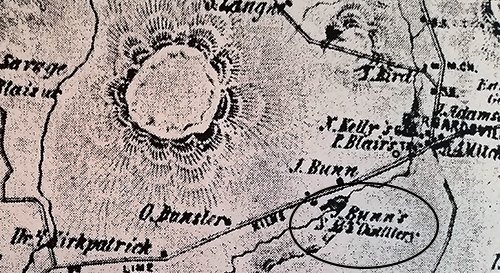
Bunns Mill, built by John Bunn in 1844, was the “industrial enterprise in Bernardsville,” according to the Bernardsville News. It ground wheat, rye, buckwheat, flour, and corn and served as the area’s cider mill and distillery.
In Somerset County, rich in German, Dutch, and Scottish heritage, there are a few noted family names that held strong to the distilling practice. For both libations and fuel, the names included such locals as the Melicks, Mellicks, and Bunns, among others, who have been distilling since the early 1800s. Since the 1800s, the area has been a paradise of orchards, particularly known for its apples and peaches. Orchards were abundant in the area and used as a key ingredient for distilling alcohol. The Bunn family successfully provided distilled spirits to the masses visiting the area via the train, and people came to the Bunn distillery to “get their bunn on.” Many were also found later sitting in the town’s jail for public intoxication.
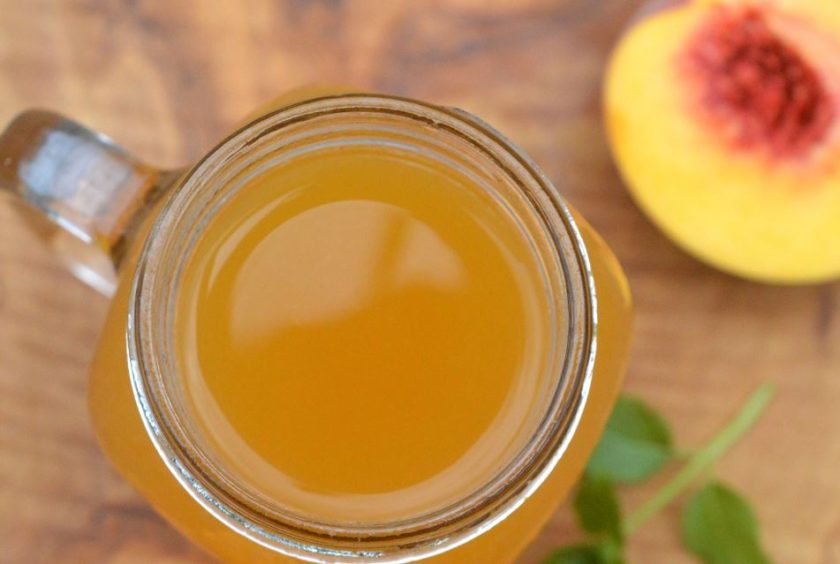
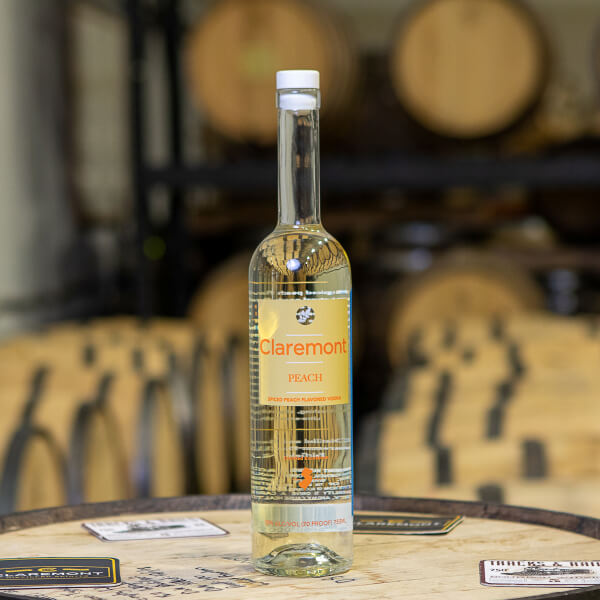
Jersey Fresh – Jersey Made: New Jersey’s own Claremont Distillery’s peach-flavored vodka is made with all-natural peach flavors, capturing the rich essence of one of New Jersey’s most prized fruits. Peaches have grown in the state since the early 1600s when settlers first recognized New Jersey’s soil and climate provided ideal growing conditions for producing flavorful and luscious peaches. Incorporating these flavors with their potato vodka yields a product with ripe peach flavors and rich layers, resulting in a refreshing and elegant beverage. Claremont Peach Vodka (70 Proof, 35% ABV)
Peach Orchard Resurgence
We’re happy to report that, while the San Jose Scale caused tremendous damage to the Jersey peach orchard farms, the farming community didn’t give up and eventually defeated the pesky infestation. Today, farmers markets throughout the state once again honor the fruits of the peach. The peach-picking season in New Jersey begins in mid-July and lasts through August and early September.
New Jersey Peach Facts
Today, the southern counties of New Jersey, Gloucester, Cumberland, Camden, Atlantic, and Salem Counties are the state’s major growing areas. Gloucester County has the state’s most peach trees, but peach orchards are throughout New Jersey. Fresh peaches are great to eat on their own, but they can also be used to produce peach cider, peach syrup, peach jam, peach salsa, peach preserves, peach jelly, peach ice cream, canned and frozen peaches, and a wide variety of peach baked goods.

- New Jersey ranks 4th nationally for peach production, after California, South Carolina & Georgia.
- New Jersey is annually among the top five in the nation in peach production. According to the USDA, New Jersey farmers harvested 36 million pounds of peaches on 3,900 acres in 2020 for a production value of $26 million.
- 100% of New Jersey’s peach crop is sold to the fresh market via supermarkets, farm markets, specialty produce stores, U-pick operations, and community farmers markets. Jersey peaches are shipped all over the eastern US and eastern Canada.
- New Jersey peaches are all picked by hand.
- There are approximately 80 peach orchards in New Jersey, and growers produce more than 100 different types of peaches. About 90 percent of those peaches are yellow and white varieties.
- Several peach varieties developed at the New Jersey Agricultural Experiment Station were important for many years in New Jersey and in other peach-growing areas of the nation, including the GOLDEN JUBILEE, SUMMERCREST, GOLDENEAST, AMBERGEM, JERSEYLAND, SUNHIGH, TRIOGEM, and BLAKE varieties.
- Dr. Catherine Bailey and Frederick Hough assumed leadership of the Breeding program and introduced several commercially important varieties, including the JERSEYDAWN, SUMMERGLO, JERSEYQUEEN, JERSEYGLO, AUTUMNGLO, and ENCORE varieties.
- New Jersey’s average peach production is 60 – 66 million pounds/30,000 – 33,000 tons.
- The average total wholesale production value of New Jersey peaches is $30-35 million.
- The Jersey Fruit Co-op, established in 1940, supplies produce to Eastern Propak and is the largest shipper of peaches and nectarines in New Jersey.
- Claremont Distilled Spirits – The largest craft distillery in New Jersey, producing spirits from fruits including peaches and blueberries.
Visit a Jersey Peach Orchard
Get out there and enjoy the summer and some of the best peaches you’ll find anywhere in the country. Many of the orchards also have stores that offer not only farm-fresh peaches but also other peach products, including cold peach gazpacho, baked peach goods, natural peach soap, peach pies, peach lemonade, peach yogurt, peach candles, and more. Here are a few orchards in Somerset, Hunterdon, Morris, and Monmouth County:
- Melick’s Town Farm – Califon and Bridgewater
- Alstede Farms – Chester
- Eastmont Orchards – Colts Neck
- Battleview Orchards – Freehold
- Wightman Farms – Morristown
